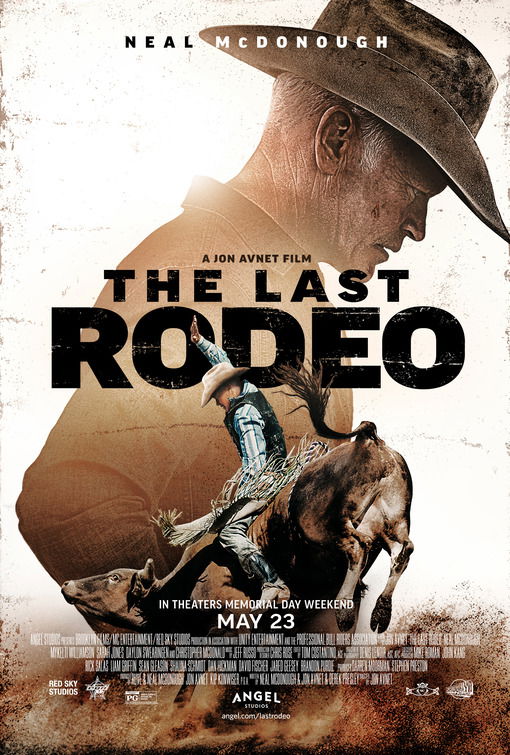“Too Painful”

| None | Light | Moderate | Heavy | |
|---|---|---|---|---|
| Language | ||||
| Violence | ||||
| Sex | ||||
| Nudity |
What You Need To Know:
TASTE OF CHERRY, a depressing, slow Iranian film with subtitles, depicts the determination of a middle-aged man, Mr. Badii, to end his life and to find someone to help him in this endeavor. Driving around the dirt hills surrounding the city of Tehran, Mr. Badii offers money to three men to help him with his plan. He shows each one a hole beside a road and proposes that each one come back at dawn and yell his name three times. If Mr. Badii does not answer, he asks each to throw twenty shovels of dirt into the hole. The first two men reject Mr. Badii’s proposal out, but the third tries to dissuade Mr. Badii by appealing to one of life’s simple pleasures: the taste of cherries.
TASTE OF CHERRY yields little information about its main character. No one knows how he thinks or how he feels (except that he is in a lot of pain). Viewers learn nothing about his life; whether he is married, has children, or what his occupation is. TASTE OF CHERRY oversimplifies the serious issue of suicide and leaves viewers feeling confused due to its lack of character development, defective ending and minimal dialogue.
Content:
(Pa, FR, D, M) Pagan worldview with false religious elements of Islam with some pro-life elements; no obscenities or profanities; discussion of suicide; no sex; no nudity; and, drug abuse.
More Detail:
TASTE OF CHERRY, a depressing, slow-paced Iranian film (with English subtitles), depicts the determination of a middle-aged man, Mr. Badii (Homayon Ershadi), to end his life and to find someone to help him in this endeavor. Viewers never learn why Mr. Badii wants to commit suicide. Mr. Badii explains that he doesn’t feel that anyone can experience or understand the depth of his pain, so he refuses to talk about it. Driving around the dirt hills surrounding the city of Tehran, Mr. Badii offers three different men a handsome sum of money to help him with his plan. He explains to each one of them, by showing them a hole beside a road, that he would like them to come back at dawn and yell his name into the hole three times. If he does not answer, they are to throw twenty shovels of dirt into the hole, presumably to bury his dead body.
The first man, a soldier, who had been drafted into the Iranian army two months beforehand, perceives Mr. Badii to be a madman and jumps out of the car at the first chance. The second, a seminarian, tells Mr. Badii that God dislikes anyone’s taking his own life. Referring to the Koran, he informs Mr. Badii that helping him to commit suicide would go against his beliefs. Finally, Mr. Badii comes across Mr. Bagheri, a taxidermist who works at the Museum of Natural History and who has a sick child.
Mr. Bagheri tells Mr. Badhii that he also wanted to commit suicide at one time. However, when he heard and saw the children playing and tasted the sweetness of the mulberries that grew in a tree, he realized that life is valuable and that he must change his outlook. He tries to get Mr. Badii to talk about his problems but to no avail. He asks Mr. Badii, “Do you want to forget the taste of cherries?” Failing to dissuade him from suicide, Mr. Bagheri agrees to carry out his part of Mr. Badii’s plan because he could use the money to take care of his sick child.
Although TASTE OF CHERRY touches on the very sensitive issue of suicide, it never explores it in depth. Because Mr. Badii does not reveal his motivation for suicide, it is difficult for the audience to connect with him. No one knows how he thinks or how he feels (except that he is in a lot of pain). Why does he despair of living? Why does he want to take his own life? Viewers never learn anything about his life; whether he is married, has children, or works. With very limited dialogue, the film leaves many unanswered questions. Does Mr. Badii unconsciously hope that his accomplice might talk him out of his suicide when he comes to pour dirt into the hole? Viewers wonders whether dying in a hole is supposed to reflect some aspect of Iranian culture.
TASTE OF CHERRY ends abruptly, with no final resolution. The film concludes with a scene of Homayon Ershadi being photographed climbing into the hole, and then climbing out, as camera assistants watch on the film set. Even Iranian viewers at a recent screening stated that they did not understand the ending. Yet, TASTE OF CHERRY does uphold the value of life in that it depicts the horrified reactions of the three men to Mr. Badii’s plan to commit suicide. In spite of the difficulties that all three have in their lives, they all appreciate life’s simple pleasures. They all also seem to find meaning in carrying out the responsibilities to which they have been assigned.
In fact, the primary message of TASTE OF CHERRY seems to lie in rejecting suicide in favor of carrying out the responsibilities to which one has been assigned in life. Although Mr. Bagheri’s advice has the most credibility, since he at one time also considered suicide, his approach to Mr. Badii is counter-therapeutic. He minimizes Mr. Badii’s pain by asking why should he kill himself over one little problem. He sees Mr. Badii’s solution as to simply change his outlook, but research has shown that it is important for people who are suicidal to feel understood and to have their feelings validated. The oversimplification of this serious problem is disturbing.
Because of its theme of suicide, TASTE OF CHERRY is appropriate only for mature audiences. It is disappointing that Mr. Badii’s motives for suicide and his hopelessness about living were not more deeply explored. The movie leaves viewers feeling flat. The audience is left with not much to contemplate. When it is over, viewers walk away feeling confused and depressed, with a lot of unanswered questions.
The first man, a soldier, who had been drafted into the Iranian army two months beforehand, perceives Mr. Badii to be a madman and jumps out of the car at the first chance. The second, a seminarian, tells Mr. Badii that God dislikes anyone’s taking his own life. Referring to the Koran, he informs Mr. Badii that helping him to commit suicide would go against his beliefs. Finally, Mr. Badii comes across Mr. Bagheri, a taxidermist who works at the Museum of Natural History and who has a sick child.
Mr. Bagheri tells Mr. Badhii that he also wanted to commit suicide at one time. However, when he heard and saw the children playing and tasted the sweetness of the mulberries that grew in a tree, he realized that life is valuable and that he must change his outlook. He tries to get Mr. Badii to talk about his problems but to no avail. He asks Mr. Badii, “Do you want to forget the taste of cherries?” Failing to dissuade him from suicide, Mr. Bagheri agrees to carry out his part of Mr. Badii’s plan because he could use the money to take care of his sick child.
Although TASTE OF CHERRY touches on the very sensitive issue of suicide, it never explores it in depth. Because Mr. Badii does not reveal his motivation for suicide, it is difficult for the audience to connect with him. No one knows how he thinks or how he feels (except that he is in a lot of pain). Why does he despair of living? Why does he want to take his own life? Viewers never learn anything about his life; whether he is married, has children, or works. With very limited dialogue, the film leaves many unanswered questions. Does Mr. Badii unconsciously hope that his accomplice might talk him out of his suicide when he comes to pour dirt into the hole? Viewers wonders whether dying in a hole is supposed to reflect some aspect of Iranian culture.
TASTE OF CHERRY ends abruptly, with no final resolution. The film concludes with a scene of Homayon Ershadi being photographed climbing into the hole, and then climbing out, as camera assistants watch on the film set. Even Iranian viewers at a recent screening stated that they did not understand the ending. Yet, TASTE OF CHERRY does uphold the value of life in that it depicts the horrified reactions of the three men to Mr. Badii’s plan to commit suicide. In spite of the difficulties that all three have in their lives, they all appreciate life’s simple pleasures. They all also seem to find meaning in carrying out the responsibilities to which they have been assigned.
In fact, the primary message of TASTE OF CHERRY seems to lie in rejecting suicide in favor of carrying out the responsibilities to which one has been assigned in life. Although Mr. Bagheri’s advice has the most credibility, since he at one time also considered suicide, his approach to Mr. Badii is counter-therapeutic. He minimizes Mr. Badii’s pain by asking why should he kill himself over one little problem. He sees Mr. Badii’s solution as to simply change his outlook, but research has shown that it is important for people who are suicidal to feel understood and to have their feelings validated. The oversimplification of this serious problem is disturbing.
Because of its theme of suicide, TASTE OF CHERRY is appropriate only for mature audiences. It is disappointing that Mr. Badii’s motives for suicide and his hopelessness about living were not more deeply explored. The movie leaves viewers feeling flat. The audience is left with not much to contemplate. When it is over, viewers walk away feeling confused and depressed, with a lot of unanswered questions.


 - Content:
- Content: 


